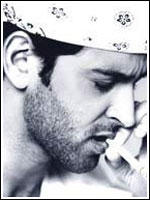These are entries to a
Washington Post competition asking for a rhyme with the most romantic first line but the least romantic second line.
Love may be beautiful, love may be bliss
but I only slept with you, because I was pissed.
I thought that I could love no other.
Until, that is, I met your brother.
Roses are red, violets are blue,
sugar is sweet, and so are you.
But the roses are wilting,
the violets are dead,
the sugar bowl's empty
and so is your head.
Of loving beauty you float with grace.
If only you could hide your face.
Kind, intelligent, loving and hot;
this describes everything you are not.
I want to feel your sweet embrace
but don't take that paper bag off of your face.
I love your smile, your face, and your eyes,
Damn, I'm good at telling lies!
My darling, my lover, my beautiful wife:
Marrying you screwed up my life.
I see your face when I am dreaming.
That's why I always wake up screaming.
My love, you take my breath away.
What have you stepped in to smell this way?
My feelings for you no words can tell
except for maybe "go to hell."
What inspired this amorous rhyme?
Two parts vodka, one part lime.





